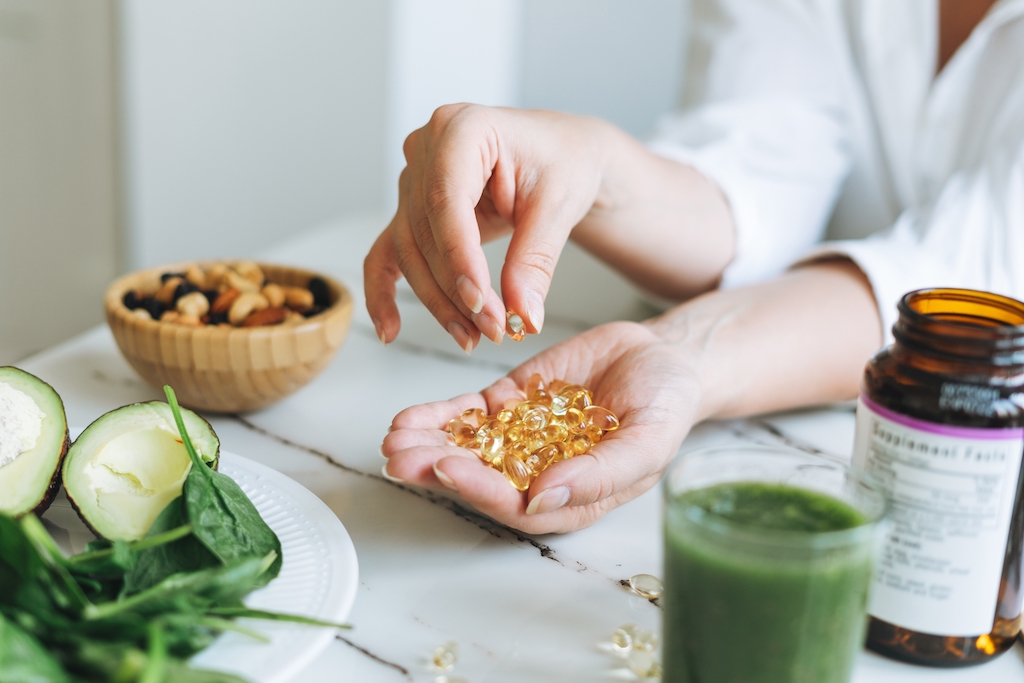 Photo Credit: Shutterstock
Photo Credit: Shutterstock
Women, as you creep into your 40s and 50s, have you been feeling like a hot mess? Your anxiety is through the roof, you can’t seem to grasp your weight gain, and your mood swings are uncontrollable; does this sound familiar? We get it, and so does Haute Beauty expert Dr. Leita Harris of Nurturing You Women’s Health & Wellness. You’re not alone.
Many women experience these symptoms at the start of their menopause journey, which is why Dr. Harris is here to share her secrets on how you can take control of your health and flourish in midlife!
What is menopause?
Though you might be feeling the symptoms of menopause already, it is important to know what that means for your body. Menopause is the end of your menstrual periods and ovulation. Therefore, it also marks the end of your childbearing years. Usually, women enter menopause around 50, but it can occur at any age, from their early 40s to their late 50s. Women officially enter into menopause after 12 consecutive months with no menstrual bleeding and no presence of a condition that could be causing the absent periods (i.e., hypothalamic amenorrhea, endometrial ablation, Progestin releasing IUD, hysterectomy, etc.)
A dramatic shift in the balance of reproductive hormones occurs as the ovaries no longer secrete the main reproductive hormones, estrogen and progesterone. Thus, estrogen levels decrease significantly. The ovaries produce the majority of the estrogen in the body, so when they stop producing estrogen in menopause, levels of this reproductive hormone decline. This decrease in estrogen levels is responsible for most of the symptoms of menopause, such as hot flashes and vaginal dryness. Progesterone levels also decrease during menopause.
Some women go through all of the symptoms of menopause with great difficulty and discomfort, while others experience much fewer and more subtle symptoms. The symptoms and their severity greatly depend on the individual.
 Photo Credit: Shutterstock
Photo Credit: Shutterstock
Natural Solutions
Many women going through menopause feel like they have no other recourse than to take synthetic hormones when there are plenty of natural solutions. Let’s break it down…
You can modify your diet. Did you know that the most significant dietary adjustment you can make for your optimal hormone balance is maintaining healthy blood sugar and cortisol levels. When your blood sugar is stabilized – your adrenal glands and hormone levels are happy.
You can ditch xenoestrogens. Xenoestrogens are chemicals found in the environment that mimic estrogen. They are found in our care products, household cleaning products, cosmetics, fragrances and food. Therefore it is easy to switch out some of your most used products to chemical-free, natural ingredients that won’t increase the total estrogen in your body.
You can reduce stress. This is key to keeping healthy in general, but it will also help treat estrogen dominance. If you’re under chronic stress, the adrenal glands will shift their focus toward producing more cortisol to deal with this stress. However, they are taking away the “resources” to create progesterone. Find ways to destress: take a bath, walk, meditate; the options are endless!
You can manage weight and exercise. Regular exercise can help with weight management, and it also helps the body fight hormone imbalance in other ways. It enables lives to become more efficient at removing the bad estrogen from the body.
 Photo Credit: ShutterstockVitamins and Superfoods to Try
Photo Credit: ShutterstockVitamins and Superfoods to Try
Your body might require certain vitamins and superfoods more than it used to. These include vitamins that support adrenal function, help balance hormone levels, and aid in improving specific issues that arise due to low estrogen levels, such as bone loss.
Vitamins
- Vitamin E
- Vitamin B
- Vitamin C
- Calcium
- Vitamin D
Superfoods
- Pomegranate
- Ligan-rich seeds, grains, and legumes
- Isoflavone rich soybeans
- Portobello mushrooms
- Protein powders
- Probiotics
- Organic pasture-raised eggs
- Shatavari
No matter where you are on your health journey, make the right choice by taking the first step towards educating yourself and downloading “The Menopause Women’s Wellness Guide,” a comprehensive guide to nurturing you through this newer time in your life. For more information, Dr. Harris is available for one-on-one consultations to discuss your next steps.
For more information, visit Dr. Brian A. Levine's social media:

























